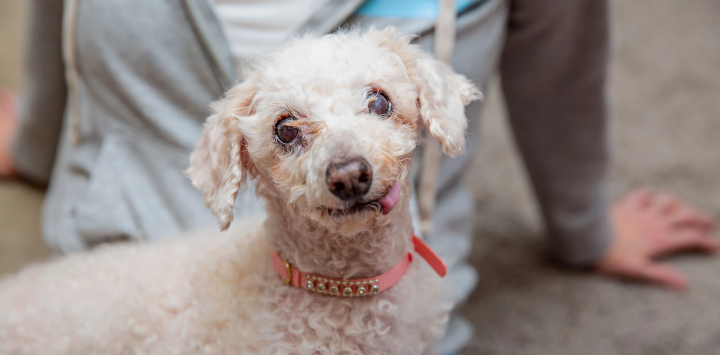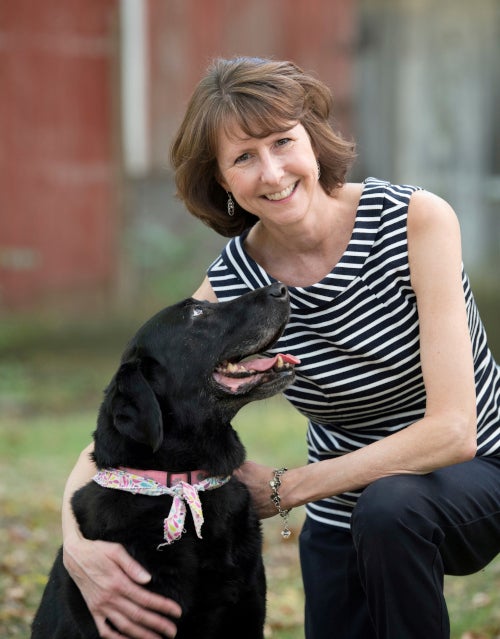
The Best Friends Podcast Episode 77
Reliable data around what’s happening to senior pets in shelters are hard to come by, but we do know this. Older animals are a highly vulnerable segment of the shelter population that is more difficult to save, and more needs to be done to help them.
Older pets may have medical issues that landed them at the shelter in the first place - and animal shelters are often ill-equipped to handle costly medical problems. Add in other factors, like the average adopter not generally on the hunt for older pets, and you may begin to realize why there are so few organizations nationwide that focus solely on senior pets.
This week we spoke with Dr. Lisa Lunghofer from The Grey Muzzle Organization about the plight of senior pets in animal shelters. You will learn the myriad ways that The Grey Muzzle Organization supports animal shelters and rescue organizations to save more of these wonderful, deserving pets.
Click here to check out all the episodes from the podcast.
 Resources from this episode
Resources from this episode- Grey Muzzle's events and webinars
- Grey Muzzle grants
- Best Friends Network: Removing Rescue Roadblocks
- Maddie's Fund: Shelter marketing: Building a brighter future
- Best Friends Human & Pet Vulnerability Study
- The Grey Muzzle Organization: Saving Seniors: A Groundbreaking National Study
- Best Friends News: The Grey Muzzle Organization steps up for senior pets
- Best Friends Network: People, Pets, and Policies: Towards Community Supported Animal Sheltering
- Leveling the Field: How to Remove Barriers for Underrepresented Communities and their Pets
- Roadblock-free is the way to be
- Best Friends Network program spotlight: Getting the Message Out - How to Overcome Adoption and Foster Challenges in your Community
- Best Friends No-Kill Shelter Positive Outcome Study

Lisa Lunghofer
executive director, The Grey Muzzle Organization
Lisa Lunghofer, Ph.D., is Executive Director of Making Good Work and has 20 years of experience working with public sector and nonprofit clients, helping them to create strategic plans, develop logic models, write winning grant proposals, build successful programs, develop evaluation plans, and track outcomes. She has worked extensively in the areas of animal welfare, the human-animal bond, violence prevention, and child and family well-being.
Since 2009, Lisa has served as a consultant to animal-related programs throughout the country. Examples of her work include designing an innovative education initiative, based on a public health model, to prevent animal cruelty in Philadelphia; writing grant proposals for programs that promote the human-animal bond; conducting strategic planning with animal and child welfare organizations; evaluating the effects of shelter dogs on veterans diagnosed from Posttraumatic Stress Disorder; and directing the Animal and Society Institute’s animal abuse prevention program. Lisa’s commitment to giving back inspired her to create the Pay it Forward program. Every quarter she selects an organization for which she provides pro bono services. In order to be considered, organizations submit applications providing an overview of the project with which they need help. All she asks in return is that the organization pays it forward, agreeing to provide a specific service at no cost to another organization in need.
Lisa volunteers with Lucky Dog Animal Rescue in Washington, D.C., serving as a member of the foster screening team and a puppy foster, and serves as president of the board of directors of the Maryland Court Appointed Special Advocate (MD CASA) Association, which seeks to provide an advocate for every Maryland child in foster care.
She lives outside of Washington, DC with her husband, Bill, and three rescue dogs, Hercules, Paterno, and Cameron.
 Episode Transcript
Episode Transcript